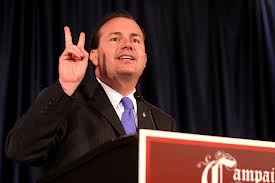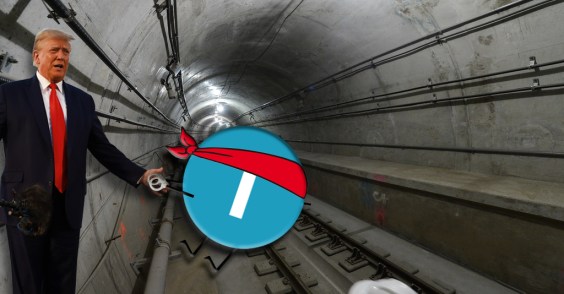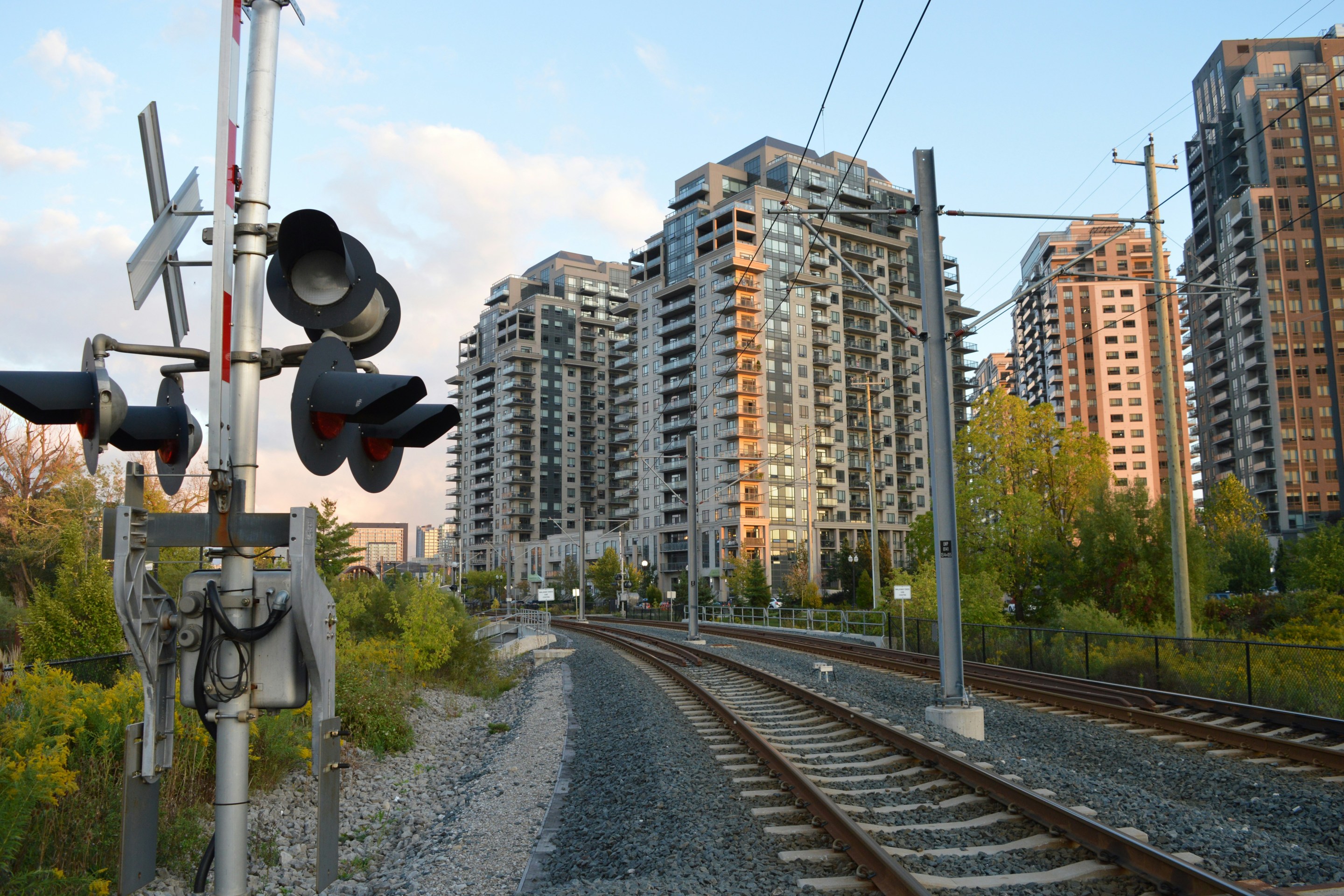Just as it seemed like a transportation extension was on the fast track to passage, a Tea Party senator from Utah is gumming up the works -- and the top Republican on the EPW Committee might have a plan to help him.

CQ Roll Call reports that Sen. Mike Lee is threatening to block progress on the extension in the Senate unless Harry Reid agrees to allow votes on two right-wing amendments.
The first is a classic "devolutionist" maneuver, a measure to gradually reduce the federal gas tax from 18.4 cents to 3.7 cents per gallon and shift the responsibility for transportation spending to the states.
Rep. Peter DeFazio loves invoking the Amos Schweitzer example to illustrate what a bad idea devolution is. In 1956, Kansas and Oklahoma were going to build a highway linking cities in the two states, but Oklahoma didn't get the money together, so the road dead-ended at the border. "For three years cars crashed through the barrier at the end of this [road] and landed in Amos Schweitzer's farm field," DeFazio said on the floor of the House two days ago. "That's devolution!"
President Eisenhower's interstate campaign, the creation of a federal Department of Transportation, and the implementation of a federal gas tax allowed for a national transportation vision to replace a fragmented state-by-state strategy. Federalization is especially important for freight, since states simply can’t be solely responsible for the ports, roads, and railways that are crucial for moving goods all around the country.
Lee's second bad idea, which he insists the entire Senate get the chance to consider, is the repeal of the Davis-Bacon Act, a landmark labor law that requires developers to pay workers no less than the locally prevailing wage for their work. Conservatives are forever introducing measures to repeal or weaken this law.
Voting on these amendments would slow the process of approving the extension, but probably not as much as not voting on the amendments. If Reid refuses Lee's ultimatum, Lee says he'll refuse to allow a quick vote on the extension bill. Any senator can block "unanimous consent," which is necessary for a bill to find a quick route to a floor vote.
And Lee isn't the only one with plans to throw a wrench in the works. Though it hasn't been reported publicly, rumor has it that Sen. David Vitter (R-LA) has an amendment to repeal both the Transportation Alternatives Program -- which funds biking and walking projects -- and a separate section of law that addresses bicycle transportation and pedestrian walkways.
Vitter's amendment could be even more destructive than Lee's, precisely because it comes from Vitter, the ranking member of the Environment and Public Works Committee. Vitter and Committee Chair Barbara Boxer have worked closely together to pass a bipartisan bill, and an amendment like this would undermine their collaboration.
That's because these amendments are specifically targeted at Boxer's desire to pass a six-year bill before the next Congress is seated. Reid is currently planning to allow a clean vote on the House extension, as it was passed two days ago, as well as two amendments: Boxer's amendment to limit the timeline to December 31 instead of next May, and Sen. Ron Wyden's amendment to substitute his menu of pay-fors for the House's.
By introducing their own highly partisan amendments, Lee (and perhaps Vitter) are telling Reid that he can either call a clean vote on the House bill or he can take amendments -- but if he does, he's going to have to wrestle with their amendments too.
Even if these Republican amendments are meant to make a procedural point more than they are meant to become policy, there's no telling what deals could be cut if this thing gets dragged out to the last possible minute.
When 367 members of the House approved an eight-month extension of the current transportation authorization, they did it because the risk of letting the Highway Trust Fund simply go broke was too great. Tell that to Mike Lee and David Vitter.





